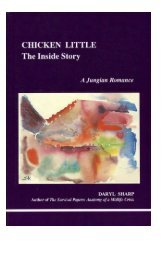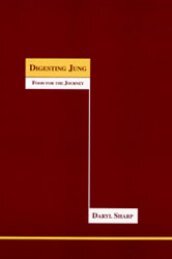Personality types: Jung's model of typology - Inner City Books
Personality types: Jung's model of typology - Inner City Books
Personality types: Jung's model of typology - Inner City Books
- No tags were found...
You also want an ePaper? Increase the reach of your titles
YUMPU automatically turns print PDFs into web optimized ePapers that Google loves.
80 Introversion and the Four Functionsreproduce exactly the internal impressions stimulated in themby a scene or a person in the real world.That is the difference between extraverted and introvertedsensation. The former, in an artist, would produce a realisticreflection <strong>of</strong> the object, the latter a faithful rendering <strong>of</strong> theimpression made by the object on the subject. Jung writes:Introverted sensation apprehends the background <strong>of</strong> the physicalworld rather than its surface. The decisive thing is not thereality <strong>of</strong> the object, but the reality <strong>of</strong> the subjective factor, <strong>of</strong>the primordial images which, in their totality, constitute a psychicmirror-world. It is a mirror with the peculiar faculty <strong>of</strong>reflecting the existing contents <strong>of</strong> consciousness not in theirknown and customary form, but . . . somewhat as a millionyear-oldconsciousness might see them. . . . Introverted sensationtransmits an image which does not so much reproduce theobject as spread over it the patina <strong>of</strong> age-old subjective experience. . . . while extraverted sensation seizes on the momentaryexistence <strong>of</strong> things open to the light <strong>of</strong> day. 99The subjective factor in sensation is essentially the same asin the other introverted <strong>types</strong>. It is an unconscious dispositionwhich alters the sense-perception at its source, thus deprivingit <strong>of</strong> the character <strong>of</strong> a purely objective influence. Subjectiveperception is oriented to the meaning that adheres to objectsrather than to their inherent physical properties.The introvert's characteristic difficulty in self-expression isalso true <strong>of</strong> this type. Jung suggests that this conceals the introvertedsensation type's essential irrationality:On the contrary, he may be conspicuous for his calmness andpassivity, or for his rational self-control. This peculiarity,which <strong>of</strong>ten leads a superficial judgment astray, is really dueto his unrelatedness to objects. Normally the object is not consciouslydevalued in the least, but its stimulus is removedfrom it and immediately replaced by a subjective reaction no99 Psychological Types, CW 6, par. 649.










